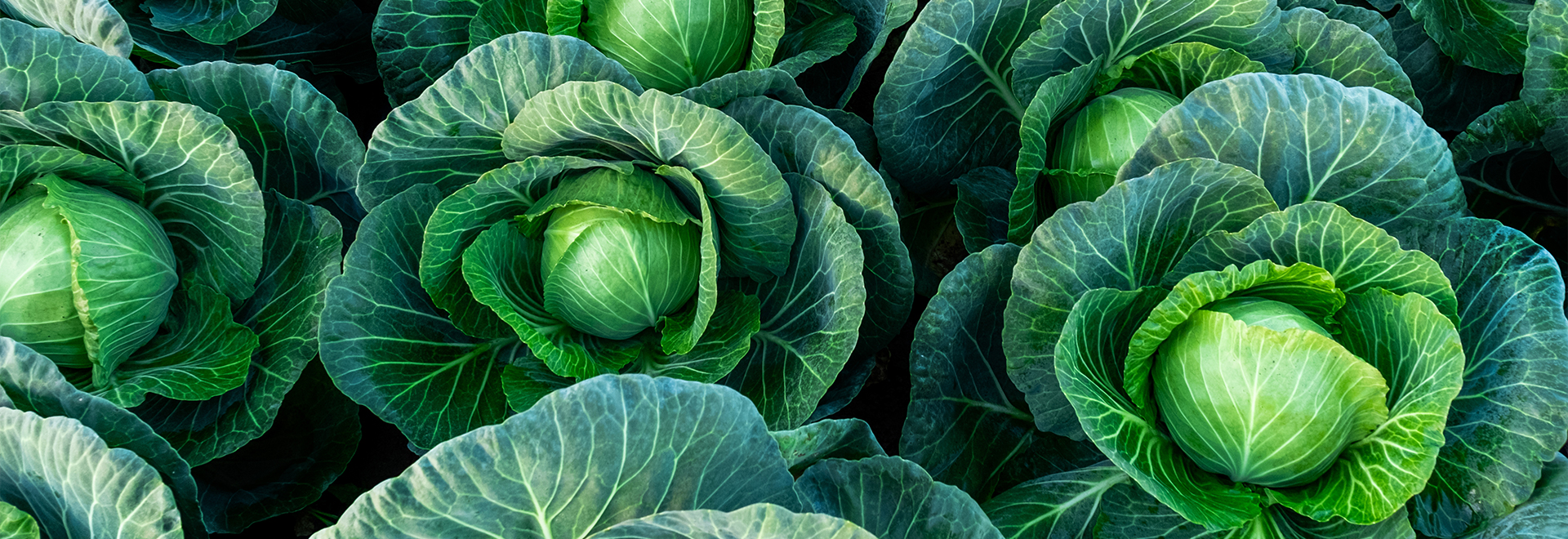Cabbage is a leafy cruciferous vegetable with impressive nutrient content at a reasonable price in the market compared with other plants in the family. A middle-sized cabbage contains numerous nutrients, including vitamin C, β-Carotene, dietary fiber, minerals, calcium, and potassium. Like lettuce with a rounded shape, cabbage gives a sweet taste and is proven to help keep cancer away. This vegetable is surely a low-calorie, low-fat, and healthy dietary option for urbanites.
What is Cabbage?
Cabbage belongs to the cruciferous vegetable family, the same as Brussel Sprouts. According to Traditional Chinese Medicine, cabbage gives a sweet and pungent flavor and is considered to be poisonless and neutral in temperature. The vegetable is beneficial to your joints, bones, tendons, lungs, stomach, and large intestine. It can also regulate qi circulation and help clear excessive heat in your body. Originated from the Mediterranean coast, cabbage is usually harvested at cool temperatures, but this vegetable has been grown all year round nowadays due to agricultural advancement. It can be found in a variety of dishes around the world, including sauerkraut, kimchi, and coleslaw. Let’s look at the health benefits of this common vegetable!
Nutrition Content of Cabbage
(In units of 100 grams of edible portion)
| Energy (kcal) | 22 |
| Protein (g) | 1.5 |
| Fats (g) | 0.2 |
| Saturated fats (g) | N/A |
| Cholesterol (mg) | - |
| Carbohydrates (g) | 4.6 |
| Sugar (g) | 2.5 |
| Sodium (mg) | 27.2 |
| Dietary fiber (g) | 1.6 |
| Water (g) | 93.2 |
Health Benefits of Cabbage
1. Detoxing
Cabbage has high vitamin C content which can purify and help excrete the toxins in your blood, such as free radicals and uric acid, defending against bacteria.
2. Lowering Blood Pressure
Potassium is an important mineral and electrolyte that the body needs to function properly. One of its main jobs is to help regulate blood pressure by counteracting the effects of sodium in the body potassium helps excrete excess sodium through urine. It also relaxes blood vessel walls, which lowers blood pressure.
3. Vitalising Body Cells
Cabbage contains glutamine, a major energy source for intestinal cells. It also helps activate immune cells and repair damaged cells.
4. Anti-Aging
Cabbage comprises natural anti-oxidants, such as vitamin E and β-Carotene, that protect the body from damage caused by free radicals. Free radicals are molecules with an odd number of electrons, making them unstable. When their levels become too high, they can damage your cells. Antioxidants can keep your body cells energized and avoid aging due to an imbalanced diet.
5. Preventing Osteoporosis
Cabbage is rich in minerals, such as calcium, magnesium, potassium, and vitamin K, maintaining your bone density, strengthening your bone, and preventing osteoporosis.
How Can Cabbage Prevent Cancer?
According to the National Cancer Institute of the United States, consuming cruciferous vegetables can lower the risk of stomach, breast, colon, and prostate cancer. The substances found in cabbage are particularly effective in preventing stomach cancer.
-
Cancer-Fighting Compounds
Anti-cancer compounds, such as lupinol, myrosulfin, and sulforaphane, can boost your immune cells and enzyme activity to weaken cancer cells and stop them from growing, spreading, and developing into tumors.
-
Vitamin U (Vitamin Ulcer)
Vitamin U is not a proper vitamin but rather a derivative of the amino acid methionine. It is not an essential nutrient for the human body. Vitamin U is an anti-ulcer substance to relieve digestive problems, such as peptic ulcers, duodenal ulcers, and gastroesophageal reflux. It is also touted to protect gastric wall cells, detox your liver, and fight against inflammation to prevent stomach cancer effectively.
Have you ever thought that such a low-cost and commonly seen vegetable has all the above health benefits? Apart from cabbage, all cruciferous vegetables are superfoods that help you stay young and enthusiastic, as well as prevent cancer. Let’s include these vegetables in your diet and diversify your food choices!

